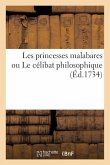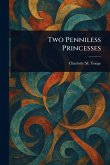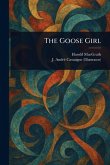Les Princesses Malabares, Ou Le CÃ(c)libat Philosophique, written by Louis Pierre De Longue and originally published in 1735, presents a fascinating glimpse into 18th-century French philosophical and literary thought. This work explores themes of philosophical celibacy through a fictional narrative, offering a unique perspective on morality and societal expectations of the time. The text blends elements of historical fiction with ethical considerations, making it a notable contribution to the intellectual discourse of the era. De Longue's work provides valuable insights into the social and philosophical debates prevalent during the Enlightenment. Readers interested in French literature, historical fiction, and the history of philosophical ideas will find this work to be a compelling and thought-provoking read. "Les Princesses Malabares" remains relevant for its exploration of timeless questions about virtue, choice, and the individual's place in society. This work has been selected by scholars as being culturally important, and is part of the knowledge base of civilization as we know it. This work was reproduced from the original artifact, and remains as true to the original work as possible. Therefore, you will see the original copyright references, library stamps (as most of these works have been housed in our most important libraries around the world), and other notations in the work. This work is in the public domain in the United States of America, and possibly other nations. Within the United States, you may freely copy and distribute this work, as no entity (individual or corporate) has a copyright on the body of the work. As a reproduction of a historical artifact, this work may contain missing or blurred pages, poor pictures, errant marks, etc. Scholars believe, and we concur, that this work is important enough to be preserved, reproduced, and made generally available to the public. We appreciate your support of the preservation process, and thank you for being an important part of keeping this knowledge alive and relevant.
Bitte wählen Sie Ihr Anliegen aus.
Rechnungen
Retourenschein anfordern
Bestellstatus
Storno








